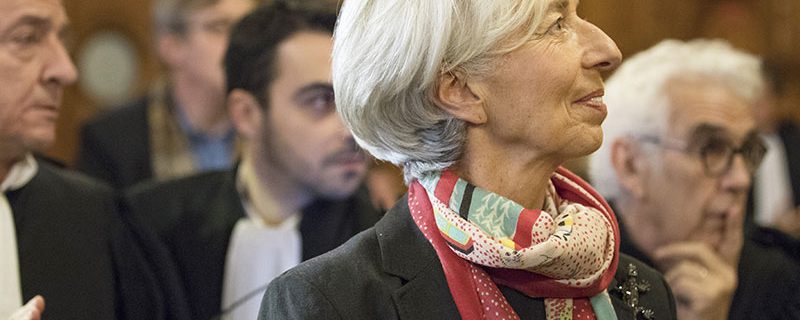On December 12, Christine Lagarde put her responsibilities as president of the International Monetary Fund (IMF) to one side as she faced trial on official charges of ‘negligence by a person in position of public authority'. The charges relate to an arbitrage payment she approved during her time as the finance minister of France – a role she held between 2007 and 2011 under then-French President, Nicolas Sarkozy. Lagarde denies any wrongdoing, but faces up to a year in prison and a €15,000 ($16,000) fine if convicted.
Concerns were raised regarding the political connection between Tapie and Sarkozy… [with] many feel[ing] this relationship may have been enough to influence Largarde's decision
The alleged crime occurred in 2008, when Lagarde approved an out-of-court settlement of €403m ($429.6m) to French business magnate Bernard Tapie. The settlement was the culmination of a long-winded feud between Tapie and state-owned bank Credit Lyonnais. Tapie originally sued the bank in the 1990s, claiming it deceived him into selling his stake in sports equipment company Adidas at too low a price.
The abnormally high settlement sparked public outcry and was later subject to investigation, paving the way for the current trial. Concerns were raised regarding the political connection between Tapie and Sarkozy, after Tapie provided support to Sarkozy during the presidential campaign. Many feel this relationship may have been enough to influence Largarde's decision.
The trial is taking place at the Court of Justice of the Republic – a French court created specifically for the trials of cabinet ministers – and is due to finish on December 20. According to a statement by the judges investigating Lagarde's case: “Ms Lagarde's behaviour proceeds not only from a questionable carelessness and precipitation, but also from a conjunction of faults which, by their nature, number and seriousness, exceed the level of mere negligence.”
Addressing the issue in an interview broadcast by France 2 television, Lagarde denied favouring Tapie. Furthermore, she said: “Negligence is a non-intentional offense. I think we are all a bit negligent sometimes in our life. I have done my job as well as I could, within the limits of what I knew.”
The case – which was initially launched in 2011 – has cast a shadow over Lagarde throughout the course of her role as IMF president.



